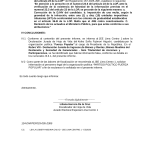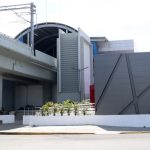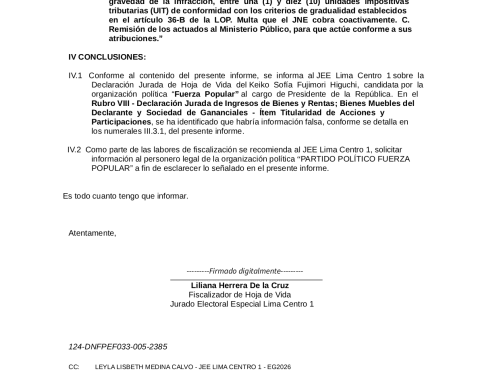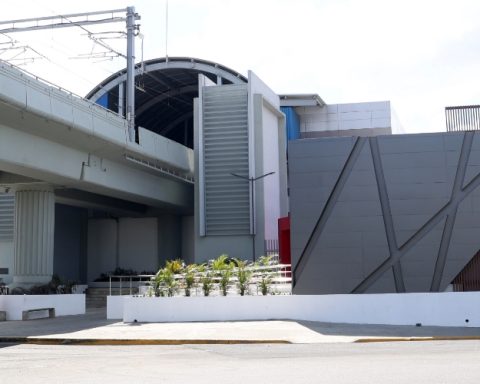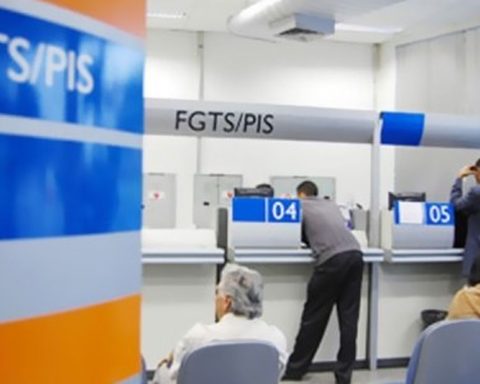BUENOS AIRES, Argentina. – Reports on the state of democracy in the world agree that there is a certain rise in dictatorships. When autocracies are in an ascending cycle it may happen that one of them appeals as an effective model of material development.
That happened with the USSR since the late 1930s, when that dictatorship seemed to catapult a backward, rural and primitive country into a world industrial power. Millions of people in the world were attracted by that mirage, until the poor sewing of the monster was evident, the masks fell, and a blocked and decadent society was left naked.
Today the same thing could be happening with Chinawhich in recent months has managed to surpass the United States in important economic indicators. If this autocratic model is capable of regulating conflicts and expanding the economy, some will think that it is a realistic model to avoid the infinite precariousness of democratic processes.
But China may be entering that point of truth that the USSR reached at a moment in its history, when the model makes it clear that it is a liability. Last September, The Financial Times published a report that points out notorious examples of how the leadership of the Chinese Communist Party was suffocating great Chinese entrepreneurs. Dictatorships seem to reach a point where they destroy the prosperity they create. The logic of the scorpion, rocker Charly García would say.
We are left with the uncomfortable example of Singapore, a country where there is great economic prosperity and which is overflowing with direct investments, and at the same time it coexists with a press under suffocation that places it at the bottom of Reporters Without Borders’ press freedom ranking. That scorpion has not yet stung the economy, nor is there any transition to move aside.
In Latin America, our wave of military dictatorships in the 1960s and 1970s also had a developmental motivation. Broad intellectual and social sectors believed that the military was the central actor to generate leaps of development that would overcome internal conflicts.
Today that illusion fortunately does not exist. The existing dictatorships in our region do not have any economic capacity. In reality, a strange family of underdevelopment dictatorships has been consolidated, making their respective people increasingly poorer.
Our Singapore would be El Salvador, where a “dictator very loved by his people” governs, as Oscar Martínez, a journalist from the local media, says. The Lighthouse. It is possible that the autocratic scorpion can also bring that precious little country into this strange family.
Eradicate journalism
The latest report of the Bertelsmann Transformation Index 2024 (BTI), presented by CADAL, shows that Cuba, Nicaragua and Venezuela are the members of this fairly homogeneous family in which comprehensive deindividuation is increasingly crystallized, which implies that both from Individually and collectively, people’s political, social, economic and cultural energy is blocked.
This family has obvious common traits. The first, the destruction of electoral democracy. Daniel Ortega and Rosario Murillo, Raúl Castro and Miguel Díaz-Canel, Nicolás Maduro and Diosdado Cabello are binomials that leave no doubt that they will not peacefully hand over power. All the masks of democratic formality have been removed.
He attack on journalism It’s also obvious. Given the essential relationship between journalism and rights, in a society without rights journalism must necessarily be eradicated. Cuba and Nicaragua have their journalism in exile, and Venezuela is possibly going that way. The Inter-American Press Association has just given “journalism in exile” the Grand Prize for Press Freedom 2024. Of course, the same fate awaits any cultural and artistic initiative that can be interpreted as dissident. The artivists Cubans are prisoners, or in internal or external exile.
They also agree that they are regimes with dissent, not with opposition. When he was in London before falling back into the deadly clutches of Vladimir Putin’s regime, Alexei Navalny complained in a meeting with the editorial board of The Financial Times that that newspaper called him a dissident, and not an opponent as he wanted. Cuba and Nicaragua have managed to mutate the opposition into dissidence, which is more testimonial and a lesser challenge to real power. They have managed to externalize the polarization, and one of the two antagonistic poles was left outside the territorial limits. The Venezuelan opposition is fighting today to prevent that from happening.
Of course, corruption is also widespread and unpunished. In all three countries the controls are strainers. From the main company in Cuba, GAESA, the holding company military, which is above all audits, even in everyday life. The BTI says that on the Island there is “generalized corruption in daily life, which creates a mentality that rules are meant to be broken.” Nicaraguan journalists from Confidential, directed by Carlos Fernando Chamorro, revealed a large number of cases of corruption, as did the Venezuelan journalists of Armando.Infoedited by Ewald Scharfenberg. The feeling is that they are autocracies where the corruption of the powerful is mirrored with that of those who have to “resolve” their daily subsistence lives.
But not everything is overwhelmingly inefficient. On the contrary, in the repressive area they are flexible and innovative. They learn in the three ways indicated by the BTI: their own experience, international experience and the resources of consultants. The contribution of Russia, China and Iran in this area is evident. It is a cooperation that recalls the repressive consultancy of the previous era of Latin American military dictatorships and its intellectual inspiration from France and the United States.
Added to these common features of under-developmental dictatorships is the economical self-lockwhich paralyzes even the initiative that state agencies may have. The BTI says that “under the presidency of Nicolás Maduro, the country’s GDP has been reduced by more than three quarters: the deepest depression ever experienced without war.” It points out that Nicaragua is 126 in the ranking of the Human Development Index. And, regarding Cuba, the extent to which economic progress is discouraged is clarified: “Antitrust regulations are only applied in the small private business sector to prevent what the Government considers enrichment.” If the State establishes the objective of preventing enrichment, there is no way to create wealth.
Eggs at home
The central node of this family of dictatorships seems to be in the external sector. The successive cycles of protests that occur in these three countries are managed by the governments first with violent repression, then with imprisonment and, finally, by pushing the leaders of these protests into exile, managing to deflate these waves of unrest. The Venezuelan events since the electoral theft of last July 28 fulfilled that pattern.
The inevitable consequence of political and economic repression is the migration collapsewhich consolidates autocratic political control. In Venezuela, the electoral horizon had awakened enthusiasm. Among the eight million who emigrated, there were Venezuelans who were turning around. If a new frustration consolidates, a new migratory tsunami will be inevitable. Even Cuba, which has had more than six decades of uninterrupted immigration, surprises us. In 2022 it had the largest migration wave in its history with around 300,000 Cubans who went to the United States while thousands of others went to Europe or Latin America. In 2022, the United States registered the highest number of Nicaraguans who tried to enter the country. And more than half of Nicaraguans say they want to leave the country.
Finally, this mass migration not only frees these regimes from contagious pockets of internal unrest and activist leaders. Also facilitates remittances that support a state of subsistence welfare. In Cuba it is around 3,000 million dollars annually. Remittances are so decisive for the regime that the government newspaper itself Granma regularly informs about how shipments can be made safely. Upon confession, relief of evidence.
A new form of remittances is even growing from Miami. Many do not send money, but directly send basic necessities, even eggs. Receiving dollars is no longer so desired because, if there are no products to buy on the Island, it is of no use. “That we receive eggs is extremely important (…) it is a guaranteed breakfast,” a Cuban lady said in an interview with the French agency AFP, while receiving a shipment with ground turkey, ham, chorizo, croquettes and yogurt.
In Nicaragua, remittances have had “exponential growth in recent years,” says the BTI, doubling the previous year’s figure in 2023. They represented 26.1% of the local GDP. Although Venezuela has an external income based on other items, the millions of Venezuelans in the diaspora send their relatives for their subsistence, even up to 60% of the income they have in their countries of arrival, in which they can suffer inflationary processes that They devalued their income and, therefore, their remittances.
Adding all these factors we have the complete picture of underdevelopment dictatorships. The final paradox is that these regimes are increasingly less legitimate, but more stable. The BTI points out that “the Ortega dictatorship in Nicaragua is more consolidated than ever” and that, in Cuba, “frustration and resignation have permeated the entire society.”
In Venezuela, María Corina Machado’s campaign slogan, “Until the end,” fights against reality. That democracy of the 70s that generously received Latin American exiles now suffers, as if it were historical revenge, from the perverse and stubborn spirit of dictatorships.
Of course, the inability of the region’s democracies to organize coherent pressure is our external “help” to the consolidation of these dictatorships.
Article written by Fernando J. Ruiz, professor of Journalism and Democracy at the Universidad Austral, and academic advisor of CADAL.






